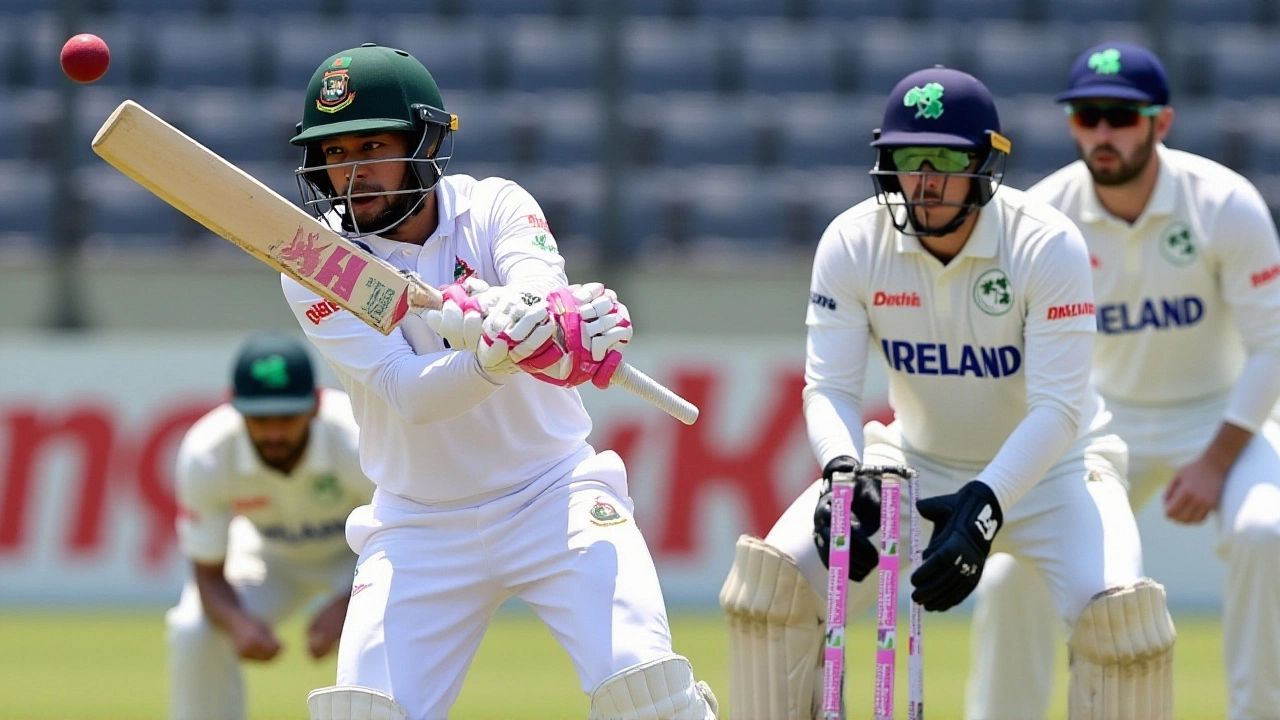21 Nov 2025
- 0 Comments
When Professor Muhammad Yunus welcomed Baroness Nuala O'Loan and Kevin Kelly to the State Guest House Jamuna in Dhaka on November 5, 2025, it wasn’t just a courtesy call — it was a quiet pivot in global diplomacy. Ireland, a country with no resident ambassador in Bangladesh, is stepping up. And Bangladesh, after its July 2024 political transition, is ready to listen.
A Shared History, a New Chapter
Relations between Bangladesh and Ireland date back to early 1972, but for decades, they were mostly symbolic. Neither country had a resident ambassador; instead, Ireland’s envoy to India handled Bangladesh affairs, while Bangladesh’s High Commissioner to the UK doubled as its representative in Dublin. That’s changing. On November 13, 2025, the Council of Advisers led by Professor Yunus approved a landmark decision: Bangladesh will open its first-ever embassy in Dublin. The move mirrors Ireland’s earlier commitment — signaled in March 2025 — to open an embassy in Dhaka, a step long sought by Bangladeshi officials since 2019.The timing isn’t accidental. With Bangladesh poised to graduate from Least Developed Country (LDC) status in 2026, Ireland sees an opportunity to deepen ties before the playing field shifts. "We’re not just watching this transition," said Ambassador Kelly at a March reception. "We’re investing in it. And frankly, we were the last people on Earth to mark St. Patrick’s Day in 2025 — because Ramadan overlapped. That says something about how intertwined our calendars have become."
Police Reform: Lessons from Belfast
Baroness O’Loan, Northern Ireland’s first Police Ombudsman, didn’t come to Dhaka to lecture. She came to share hard-won experience. After the 1998 Good Friday Agreement, she spent seven years overseeing police accountability in a society still raw from conflict. "Ireland’s own post-conflict experience offers valuable lessons in patience, inclusion, and the long-term nature of institutional reform," she told Yunus. "We’re here to share grounded experience on realistic timelines for sustainable change." Her message landed. Bangladesh’s post-uprising government is under pressure to rebuild public trust in law enforcement. The July 2024 protests, which led to the resignation of the previous administration, exposed deep fractures in policing. Ireland’s model — independent oversight, transparent investigations, community engagement — is now on the table. "We highly value Ireland’s support in ensuring that our ongoing transition remains peaceful, democratic, and accountable," Yunus responded.Yunus also made a direct appeal: help counter disinformation ahead of Bangladesh’s February 2026 national election. Ireland’s experience with misinformation during its own referendums — especially around marriage equality and abortion — gives it credibility. "We’ve seen how lies can fracture trust," O’Loan said. "We can help you build digital resilience."

Trade That Defies the Odds
Behind the diplomacy lies a staggering economic story. Bangladeshi exports to Ireland have grown at an annualized rate of 68.3% since 1995 — from $6.89 million to $347 million by 2021, and hitting nearly $500 million in 2024. That’s more than a 70-fold increase in under 30 years. "It’s not just garments," said Honorary Consul Masud Jamil Khan. "We’re exporting medical devices, leather goods, and now, IT services. Irish companies are waking up to what we can do." Khan, who leads Ireland’s honorary consulate in Dhaka, has become an unlikely diplomatic force. Since opening the office in 2024, bilateral MOUs have doubled. "The then foreign secretary of Bangladesh traveled to Dublin — the first ever. We signed two agreements: one on education, another on development cooperation. That was the moment everything changed."Humanitarian Footprint and the Rohingya
Ireland’s presence isn’t just political or economic. It’s humanitarian. In the sprawling Rohingya refugee camps in Cox’s Bazar, Irish NGOs provide free medical care — a commitment that predates the 2024 uprising. "This support has been there from the beginning," Khan noted. "It’s not performative. It’s consistent." Meanwhile, the Bangladeshi diaspora in Ireland is growing fast. An estimated 20,000 Bangladeshis now live there — many former residents of the UK who moved after Brexit, seeking EU citizenship through Irish ancestry or asylum. Asylum applications jumped from 99 in 2014 to 231 in 2015, and surged again post-pandemic. "These aren’t just migrants," said Dr. Iftekhar Ahmed Chowdhury of the Cosmos Foundation. "They’re bridges. They’re sending remittances, starting businesses, and making Ireland see Bangladesh not as a charity case — but as a partner."
What’s Next?
By mid-2026, both nations aim to have embassies fully operational. Ireland is expected to send a resident ambassador to Dhaka by August. Bangladesh’s envoy to Dublin will be appointed before the February 2026 election. The two countries are also negotiating a visa facilitation agreement — currently, Bangladeshis must apply for Irish visas through third countries like London or New Delhi. "We want a visa center in Dhaka," Khan said. "It’s not a luxury. It’s a necessity." And then there’s the education angle. Ireland’s universities, already popular with Bangladeshi students, are now designing joint research programs in climate adaptation and digital governance — two areas where Bangladesh’s real-world challenges offer valuable case studies.Frequently Asked Questions
Why is Ireland investing so heavily in Bangladesh now?
Ireland sees Bangladesh’s LDC graduation as a strategic inflection point. With access to preferential trade terms ending, Ireland wants to lock in economic partnerships before global competitors move in. Its experience in post-conflict governance also gives it moral authority to support democratic transitions — and Bangladesh’s 2026 election is a litmus test for regional stability.
How does Ireland’s police reform model apply to Bangladesh?
Baroness O’Loan’s model emphasizes independent oversight, community trust-building, and transparent investigations — all critical for Bangladesh’s post-uprising police force. Unlike top-down reforms, Ireland’s approach involved victims, civil society, and even former officers. Bangladesh is now studying how to replicate that inclusive structure, especially in rural districts where police legitimacy is weakest.
What impact will the new embassies have on ordinary citizens?
For Bangladeshis, it means faster visa processing, easier access to education and work opportunities in Ireland, and stronger consular support. For Irish businesses, it opens doors to supply chains, IT partnerships, and development funding. The embassies will also host cultural exchanges — from Bangladeshi textile fairs in Dublin to Irish literature festivals in Dhaka.
Why is the Rohingya medical aid significant?
Ireland is one of the few EU nations providing direct, sustained healthcare in the camps — not just funding NGOs. This signals deep moral alignment with Bangladesh’s humanitarian burden. With over 900,000 Rohingya in Cox’s Bazar, Ireland’s medical teams treat everything from malnutrition to trauma — a rare example of non-political aid in a politicized crisis.
Could this relationship affect Bangladesh’s ties with India or the UK?
Not directly — but it does diversify Bangladesh’s diplomatic portfolio. For years, its foreign policy leaned heavily on India and the UK. Now, with Ireland as a trusted EU partner, Bangladesh gains leverage in negotiations over climate finance, trade rules, and human rights. Ireland’s neutrality and credibility make it a quiet but powerful ally.
What’s the biggest challenge ahead for Bangladesh-Ireland relations?
The biggest hurdle is scaling trust into systems. Both countries have goodwill and personal connections — but turning that into institutionalized cooperation requires funding, legal frameworks, and bureaucratic alignment. The real test will be whether Ireland’s aid programs survive political changes in Dublin — and whether Bangladesh can maintain reform momentum after the 2026 election.
